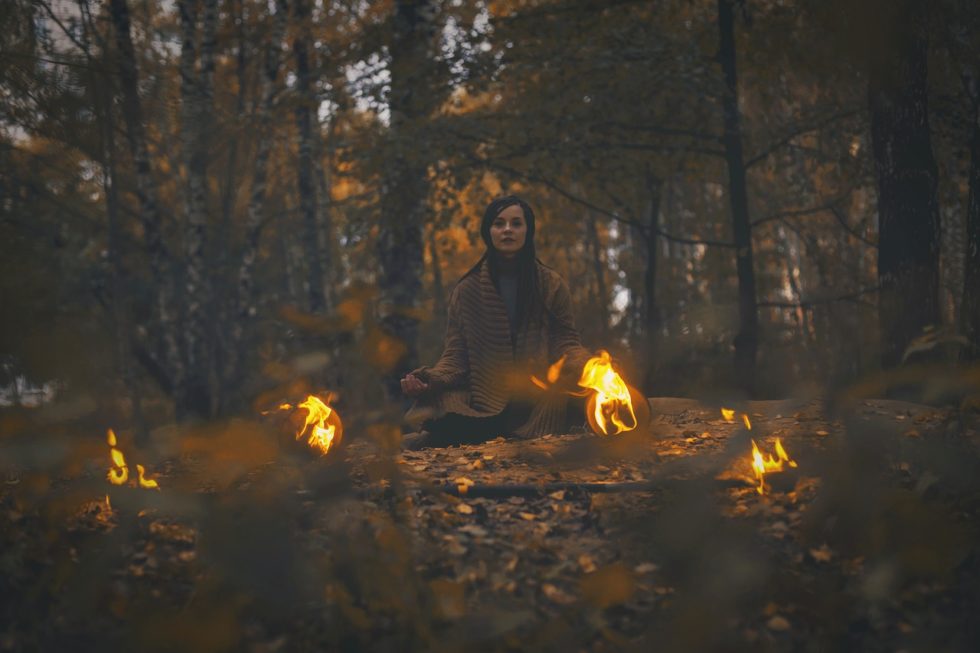
7 Mistakes New Witches Make
When a new witch embarks on her path, it can be really exciting and overwhelming. Most new witches are filled with an overabundance of enthusiasm, but that doesn’t always make for a clear and stable path.
Doing Spells Right Away
It’s exciting to think about spells, right? It’s one of the most common concepts that draws people to Wicca and witchcraft. Hollywood fills our heads with smoke and sparks and flashing lights, but in reality spells aren’t neither easy nor as flashy. Many witches ignore the skill building and exploration part of their path and instead, skip directly to spells.

Now, many people on the internet will tell you that it’s dangerous, and in a way, it can be. Not so much because you will unleash a horror unto the world, but more like, you may be unaware of the consequences of casting a spell. Not unlike taking action in real life, there are often consequences to taking magical action. Some believe in the rule of three: what you cast out comes back to you three times. Others –like myself- believe in the law of return: what you send out comes back to you. We know because we are living beings in the world, that nothing in life is consequence-free. It’s important to explore your ethics, what you believe, and how considerate you are going to be as you move forward on your magical path.
Another reason you may want to save the spells for later is that spells work better if you have an energetic skillset (and knowledge) to support them. Do you know how to raise energy? How about grounding? Channeling? Do you know how to still your mind through meditation so that you can focus your will properly? If your answer is no, you may be wasting your time trying to work a spell. Work on your skillset first, and then move onto spellwork.
Believing Everything You Read
You probably already know that there are different types of witches, believing different beliefs and practicing different traditions. With the advent of self-publishing, literally anyone can publish a book. This means that Amazon (and some bookstores) are full of books spouting different beliefs, ethics, practices and tradition. Don’t believe everything you read, especially books that aren’t sourced in historical evidence.

Do not take the writings as others as your own truth. Instead, allow yourself to examine the practices and beliefs that an author has written, and ask yourself if you believe this or not. I’ve found too many new witches change their truth to match the books that they read, rather than the other way around.
Read everything you can. Even if some people say a book isn’t accurate, etc. if you read it, you’ll get to judge for yourself. This helps build your discernment, allowing you to better point out bullshit in the future, but also, you may still find something useful in the “bad” books.
Reading, But Not Practicing
Many new witches are intimidated by actual practice. And honestly, practicing is weird and often uncomfortable at first. We aren’t used to speaking out loud to an empty space. Even the simple act of casting a circle- walking around the circle, channeling energy, visualizing and likely reading liturgy aloud- can be really difficult when you first start out. However, actual practicing is the only way it’s going to get any easier.
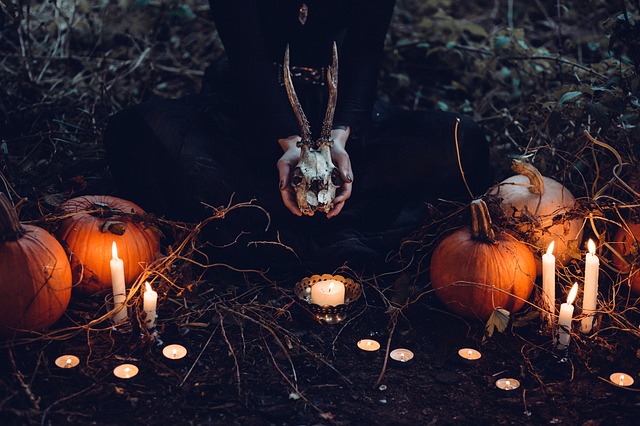
You don’t even have to do a whole ritual, you can just practice the mechanics, if you like. Cast a circle, then open it. Call the quarters and then release them. Get comfortable. I’m not saying it’s a good idea to immediately start hexing your enemies, but work on the mechanics of ritual and get used to them. Especially speaking out loud to an empty space.
Besides ritual mechanics, practice your visualization using guided meditation. Practice your stillness meditation. Pull a few tarot cards and try to analyze them before whipping out the little white book. It’s not like flipping a switch- the more practice you do, the easier it will become.
Looking Outside for Guidance
In the age of the internet and social networks, it’s become easier than ever to get answers to questions. And starting out on a Craft path, you’ll likely have a lot of questions. While some questions are fact-based and are worth asking your google, your network or groups, other questions are better answered by self-reflection. “What year did Wicca emerge in the UK?” is a good one to google. “What does this white feather I found mean?” is a question that might be better answered by looking inward. Symbols are very personal and can definitely differ from one person to another. We do have some archetypal symbols that are instinctual. Phallis shaped things usually symbolize something masculine. Bowl or cave shaped things often symbolize the feminine. But something like a white feather may mean something different to someone who is afraid of birds, than it might to someone who honors a goddess associated with the dove.

In addition to symbolism, many other answers might be found within the self. Use the skills of contemplation and meditation to find the answers you seek. Ask your question and consciously think through the answer, like mental journaling. Alternatively, take some time to do some meditation, stilling your mind and focusing on your question. You may want to ask your guides, allies or gods to help you. Then allow answers to come to you. It’s easy to forget that we have these portable problem-solving techniques with us at all times, but they can really help you find answers.
Buying ALL The Things
One thing that most witches will agree on- maybe the only thing- is that you don’t need the things to practice witchcraft. Of course, some traditions –like Wicca- require tools in order to practice their tradition, but outside of that, the most important tool you have is your mind. I know I often talk about what I consider to be the four most important foundation skills for practicing witchcraft, and it’s really true. Conquering these skills will up your witchcraft game considerably.

So why do people buy things? We connect with energy using our will, but also sense it using our senses. For example, decorating your altar for fall will help you align your energy to the season. We also use catalysts that resonate with the intent of our spellwork: herbs, candles, crystals, etc. These catalysts add energy to your spell – it’s like a boost. While you don’t need them to cast a spell, they are helpful.
That being said- you don’t need to buy all of the things, at least not right now. Maybe buy an herb or two. Or a crystal. But don’t try to turn your closet into an apothecary if you’re not completely sure that herbal magick is your thing. Don’t buy up all the pretty tarot decks before you decide that you want to dedicate yourself to learning tarot.
Thinking You Are Special
I know that this one might ruffle a few feathers.
I feel like most witches feel like this at least once or twice, especially after experiencing the mysteries a few times. Some experiences are so out of the norm, it hard not to feel like you must be the only one to have such an experience. After all, no one really talks about it. I see posts like this often on “beginner’s witchcraft” type groups. Of course, you’re unique, we all have our personal characteristics that make us unique. But you aren’t the only person to have a tarot reading come true, see ghosts, or find a white feather after thinking of a deceased loved one. It’s part of the path.

Some people begin following the witchcraft path at least partially out of a need to feel special or unique. Now, that’s probably not you, but you probably have ran into some of these people. The woman who calls herself High Priestess Lady Bumblebee because she’s read two books about Wicca. Or the guy who says that he is descended from the Original Wiccans ™ centuries ago. Or the teenager who says she’s the reincarnation of Aphrodite. Or that they are an actual werewolf. If this does happen to be you, I suggest you take a deep breath, ground yourself in truth and sink a little more deeply into the craft.
Looking For a Coven
A coven is a group of at least three witches, usually led by a high priestess, or other leader figure. It seems glamorous to join a coven, usually an exclusive group. Being part of any like-minded group is usually fun, but a coven is more than just a group of friends gathering together for a potluck (though there is that, too). Most covens gather for ritual, business meetings, and learning opportunities. When a brand new witch joins a coven, it can pose a problem, as most covens expect a baseline knowledge level. Even teaching covens often have pre-requisites, like specific books an aspirant is expected to have read.
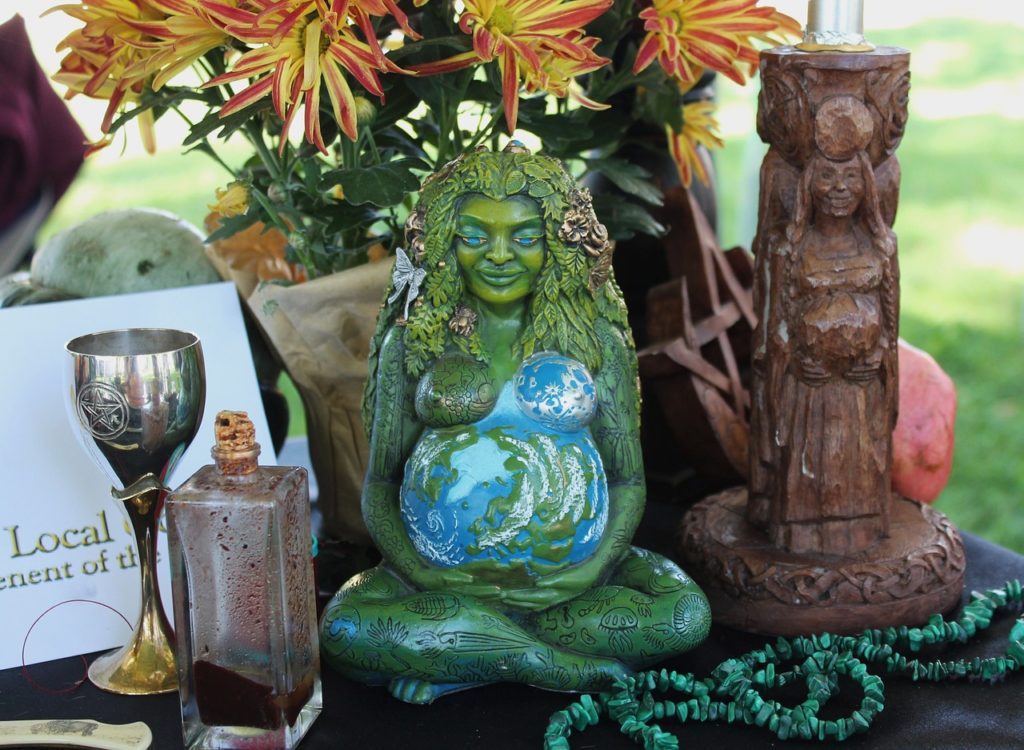
There are an infinite amount of things to learn, and learning on your own first, can have advantages. By taking control of your witchy education, you’ll be able to focus on what you want to learn, not what your group is focused on. You’ll be able to figure out and create your own personal practices. Most importantly, you’ll figure out your path. How can you choose a coven, if you don’t know what you are and are not into? What if you join a coven that honors Celtic gods, only to find out that you don’t connect with those gods at all? Figure out your own shit first. Then you can find people who are into that same shit!
Embarking upon a new path, mistakes will be always be made. While some mistakes are unavoidable, they can be turned into lessons if we allow them to. Avoid common mistakes by checking in with your intuition, and asking trusted elders or mentors. Want to join a free online women’s group with like-minded practicing witches? Check out The Integrated Witch on Facebook.
If you liked this post, check out New to Witchcraft? Start here.
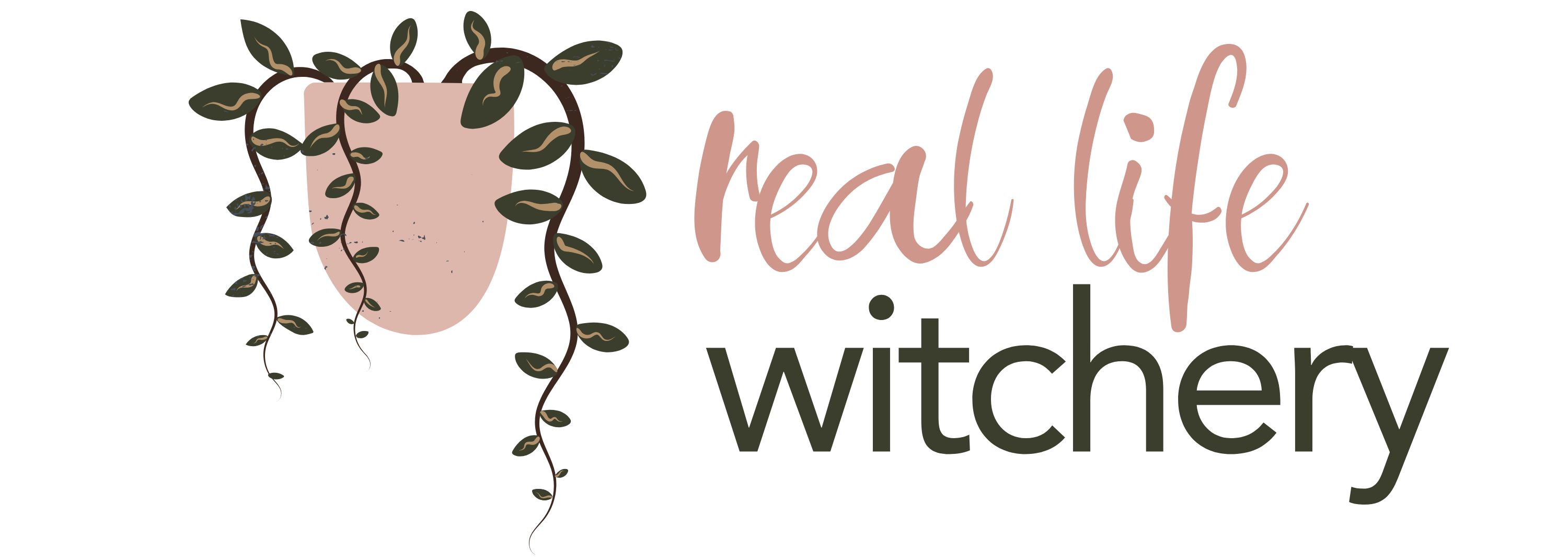

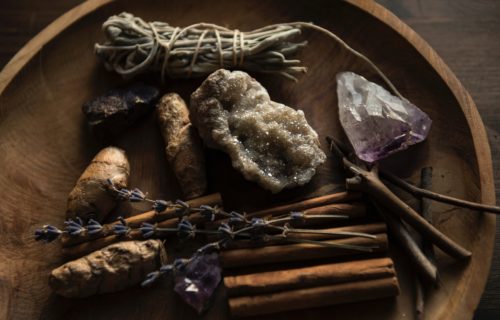

Add A Comment